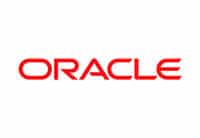Participants learn to load data by executing the mappings or the process flows, use Oracle Warehouse Builder 11g, Release 2 features to manage metadata changes, debug mappings, backup metadata, manage security, and tune the ETL mappings for better performance. Integration of Warehouse Builder with OBI EE, along with the Warehouse Builder architecture and configuration are discussed.
Participants learn to retrieve data from different types of sources such as flat files or relational schemas and also to use the different transformation operators to design an ETL task. The usage of Warehouse Builder to define both relational dimensional models and multidimensional models, to deploy a single logical model to multiple physical targets and how to handle slowly changing dimensions are also covered.
In addition, extraction of data from non-Oracle sources using code templates, usage of the Warehouse Builder ETL and data integration features of the Enterprise ETL Option of the Oracle database are discussed.
This functionality requires the Oracle Warehouse Builder Enterprise ETL/ODI EE option.
This course is a combination of Data Integration and ETL with Oracle Warehouse Builder: Part 1 and Data Integration and ETL with Oracle Warehouse Builder: Part 2 courses.
Learn To:
- Retrieve data from different types of sources such as flat files or relational schemas
- Use the different transformation operators to design an ETL task
- Load data by executing the mappings or the process flows
- Use OWB features to manage metadata changes, debug mappings, backup metadata, manage security, and tune the ETL mappings for better performance
- Integrate Warehouse Builder with OBI EEWarehouse
- Explain the Warehouse Builder architecture and configuration
A Live Virtual Class (LVC) is exclusively for registered students; unregistered individuals may not view an LVC at any time. Registered students must view the class from the country listed in the registration form. Unauthorized recording, copying, or transmission of LVC content may not be made.





